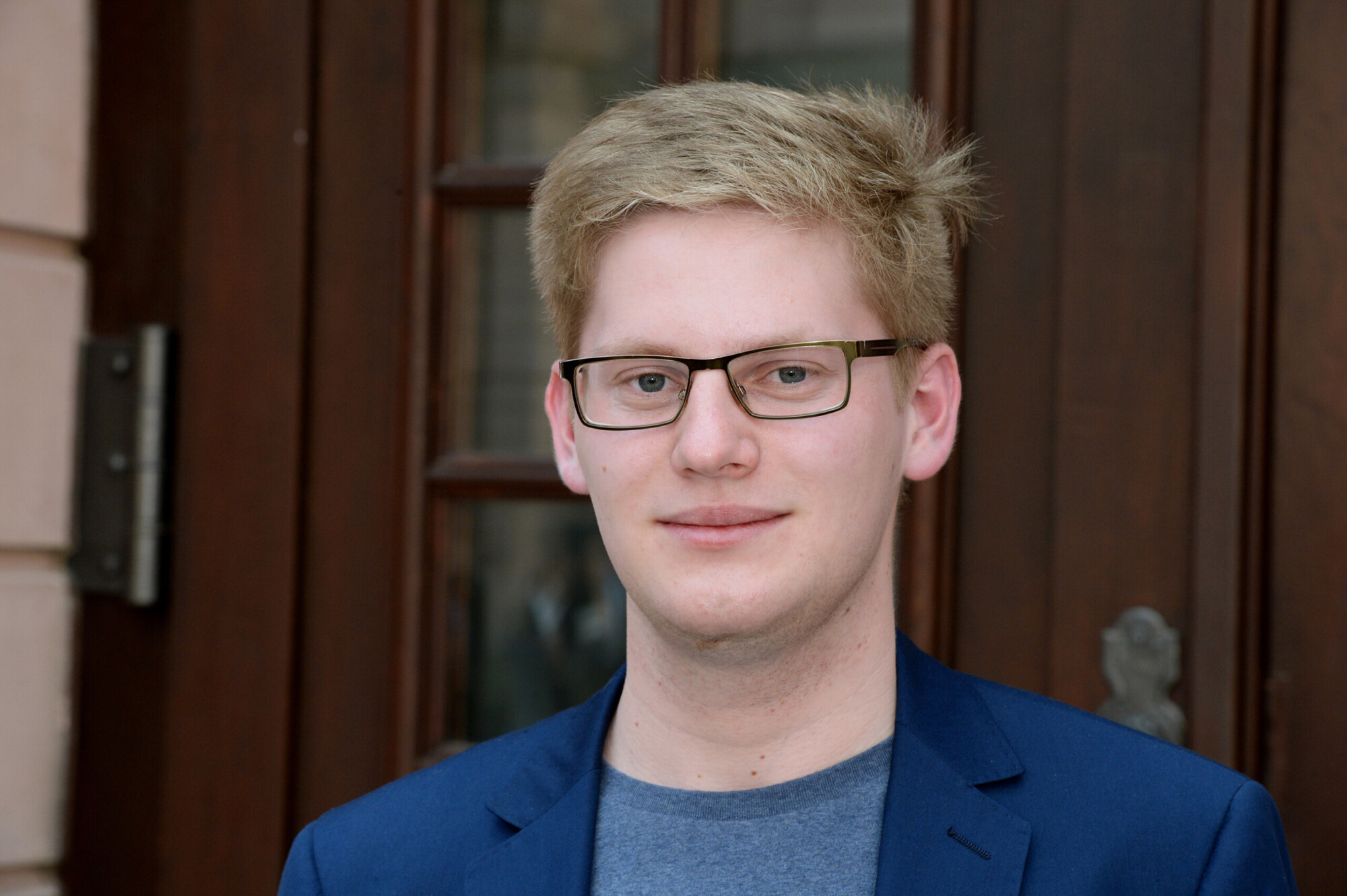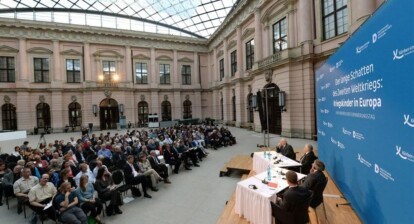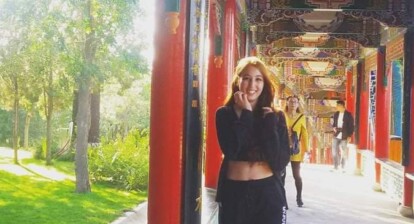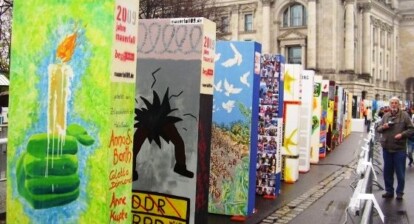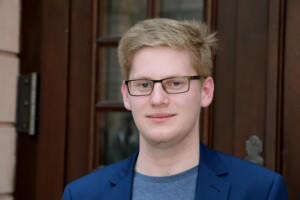
Haris Huremagić attending the Rememberance Day in Berlin. (Photo: Körber-Stiftung/David Ausserhofer)
While participating in a Remembrance Day on the occasion of the end of WW II, which focused especially on the topic of ‘childhood in war’, a 20 year old student finds himself personally and emotionally involved, pondering: Am I a child of war myself and why is this label so important?
“Children should grow up in their own native cultural circle, if not, that is a problem for them.” That sentence hit me. It was this one sentence out of thousands that occupied my mind on 4th of May during the European Remembrance Day at the German Historical Museum. The conference gave voice to the different experiences of people born between 1929 and 1949 in Europe by combining personal stories of writers with reflections of historians.
One of them was Arno Surminski, a German author who wrote many different pieces of literature about his personal experiences as a child of war. After the deportation of his parents he had to survive the expulsion from East Prussia 1945 on his own. It was him, who said the already mentioned sentence. But why did it affect me?
During a break I was asked whether I consider myself a war-child in some way. No, I do not. That was my answer – and it still is. Yes, my parents left their home country in order to escape from war, but in contrast to my cousins who stayed in Bosnia I did not suffer. However, this crucial statement makes some sort of war-child out of myself. That is why it hit me so hard. It challenged certain layers of my identity by establishing a common ground with war-children.
According to Ms. Fehrenbach, one of the speakers of the Remembrance Day from the Northern Illinois University, the Declaration of the Rights of the Child is influenced by the idea that children should have the right to grow up in the culture into which they are born. Like many war-children I did not grow up in my native cultural circle. But the question is whether this really is a problem as Mr. Surminski maintained?
If I consider what I have personally experienced so far, I can clearly say: no, it is rather a huge advantage and there are countless of reasons for that. But something different bothers me: going deeper into this topic raises more questions, than can be answered. What is a “native cultural circle”? What is a “foreign” one? How do we define “foreignness” and how do we cope with it?
Looking into history can be a crucial help in gathering answers to these questions.
Ms. Fehrenbach for instance referred to her research focusing on minority children, such as black occupation-children in Germany after 1945 and the question how those children are identified. She claimed that they partly considered themselves to be “black” retrospectively because it was the definition that was imposed on them by the German post-war society. That means, although these children had a German parent and were born in Germany they were considered to be rather “black” than German and as a result they felt themselves to be “black”.
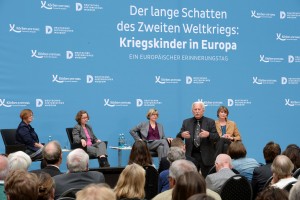
An emotional first panel with Arno Surminski participating – inspired Haris to write this article. (Photo: Körber-Stiftung/ David Ausserhofer)
It struck me to see so many parallels between the past and the presence here: we are still doing the same as a society. We are imposing political categories on children, who do not grow up in their “native” cultural circle. In German speaking countries the term “Migrationshintergrund” (transl. migrant background) is used to describe – among others – immigrants’ children although they often have the target country’s citizenship and have grown up in there. Thus these children feel themselves to be different because our society is making a distinction here. Why are we doing that?
The sentence “Children should grow up in their own native cultural circle” works with these categories. In this regard our society is still using the same patterns as after the Second World War. We have not found an appropriate way of coping with diversity during the last 70 years. We as a society should ask ourselves: Who are we? Who do we want to be? What should our future society look like?
On that note the Remembrance Day took one important step in providing a platform for discussing fates of war children after Second World War in Europe and trying to build bridges to our present society. I did not expect that it would give me so much food for thought related to our present society’s challenges and even to myself.

